THE R5.5bn tax bill slapped on Kumba Iron Ore, which is already grappling with a plunge in profit, may delay Anglo American’s exit from the iron ore miner — SA’s largest.
Kumba warned at its full-year results last month that it faced a R1.8bn tax claim from the South African Revenue Service (SARS), and said on Monday interest and penalties had added R3.7bn to the bill, bringing the total to nearly a quarter of its R23bn market capitalisation.
SARS was conducting a field audit of Kumba’s assets for the years 2011-13, the company said last month.
"If pursued by SARS, we believe this claim could complicate Anglo American’s plans to sell or spin out its interest in Kumba. Not least since we believe the South African authorities are likely to require Kumba to be debt-free as part of Anglo American’s exit," JP Morgan Cazenove said.
Last month, Anglo made it clear its 69.7% stake in Kumba was no longer core, and it was assessing options on how best to exit its investment, either through a sell-down or demerger of the asset. "Anglo American said on February 16, we were considering our options to exit from Kumba at the appropriate time and that is what we are doing and will continue to do," said spokesman Pranill Ramchander when asked about a potential delay.
SARS conducted a tax audit of Kumba’s affairs between 2006 and 2010 and issued a claim for R1.8bn, excluding interest and penalties in the second half of last year. A letter from SARS was received on Friday, outlining the interest and penalty charges.
Kumba said it would "vigorously defend" the assessment on its 73.9% held Sishen Iron Ore Company (SIOC), which houses Kumba’s Sishen and Kolomela mines.
"SIOC has co-operated fully with SARS during the course of the audit, but, supported by its specialist tax and legal advisers, disagrees with SARS’s audit findings," Kumba said on Monday.
"SIOC is, therefore, in the process of preparing an objection to the assessment, together with an application to the Commissioner of SARS for a suspension of payment until the matter is resolved." The matter was likely to drag on for three to five years, with Kumba prepared to take the matter to court, said spokeswoman Nikki Wetzlar. "In terms of our covenants, we are confident that we will get a stay of payment, and if not, we will approach the courts. Because of the process, we are unlikely to have to make payments anytime soon."
Paying the tax bill if SIOC failed to overturn the assessment could affect all SIOC shareholders including Kumba; Exxaro, with its 20% stake; and community and employee schemes, with 3% each. SIOC as a legal entity would be responsible for payment and would have to raise the funds, either from internally generated cash, debt funding or a rights issue, Ms Wetzlar said.
Exxaro said it had noted Kumba’s announcement. It was too early for Exxaro "to respond, in as far as what the total and final assessment may be and how this will relate to the company", a company official said.
Kumba’s full-year profit fell to R627m compared to R14.1bn a year earlier; its net debt was R4.6bn, and cash was R3.6bn.
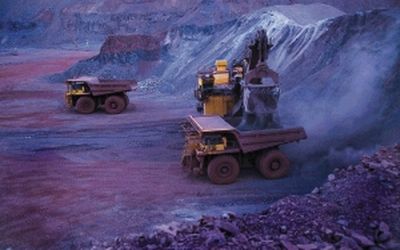
PICTURE: FINANCIAL MAIL
THE R5.5bn tax bill slapped on Kumba Iron Ore, which is already grappling with a plunge in profit, may delay Anglo American’s exit from the iron ore miner — SA’s largest.
Kumba warned at its full-year results last month that it faced a R1.8bn tax claim from the South African Revenue Service (SARS), and said on Monday interest and penalties had added R3.7bn to the bill, bringing the total to nearly a quarter of its R23bn market capitalisation.
SARS was conducting a field audit of Kumba’s assets for the years 2011-13, the company said last month.
"If pursued by SARS, we believe this claim could complicate Anglo American’s plans to sell or spin out its interest in Kumba. Not least since we believe the South African authorities are likely to require Kumba to be debt-free as part of Anglo American’s exit," JP Morgan Cazenove said.
Last month, Anglo made it clear its 69.7% stake in Kumba was no longer core, and it was assessing options on how best to exit its investment, either through a sell-down or demerger of the asset. "Anglo American said on February 16, we were considering our options to exit from Kumba at the appropriate time and that is what we are doing and will continue to do," said spokesman Pranill Ramchander when asked about a potential delay.
SARS conducted a tax audit of Kumba’s affairs between 2006 and 2010 and issued a claim for R1.8bn, excluding interest and penalties in the second half of last year. A letter from SARS was received on Friday, outlining the interest and penalty charges.
Kumba said it would "vigorously defend" the assessment on its 73.9% held Sishen Iron Ore Company (SIOC), which houses Kumba’s Sishen and Kolomela mines.
"SIOC has co-operated fully with SARS during the course of the audit, but, supported by its specialist tax and legal advisers, disagrees with SARS’s audit findings," Kumba said on Monday.
"SIOC is, therefore, in the process of preparing an objection to the assessment, together with an application to the Commissioner of SARS for a suspension of payment until the matter is resolved." The matter was likely to drag on for three to five years, with Kumba prepared to take the matter to court, said spokeswoman Nikki Wetzlar. "In terms of our covenants, we are confident that we will get a stay of payment, and if not, we will approach the courts. Because of the process, we are unlikely to have to make payments anytime soon."
Paying the tax bill if SIOC failed to overturn the assessment could affect all SIOC shareholders including Kumba; Exxaro, with its 20% stake; and community and employee schemes, with 3% each. SIOC as a legal entity would be responsible for payment and would have to raise the funds, either from internally generated cash, debt funding or a rights issue, Ms Wetzlar said.
Exxaro said it had noted Kumba’s announcement. It was too early for Exxaro "to respond, in as far as what the total and final assessment may be and how this will relate to the company", a company official said.
Kumba’s full-year profit fell to R627m compared to R14.1bn a year earlier; its net debt was R4.6bn, and cash was R3.6bn.


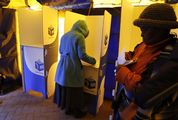

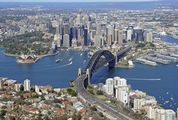



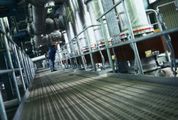
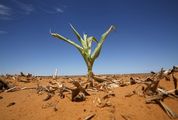











Change: 1.14%
Change: 1.40%
Change: 1.53%
Change: 0.84%
Change: 2.29%
Data supplied by Profile Data
Change: 0.56%
Change: 2.11%
Change: 1.14%
Change: 0.00%
Change: 2.39%
Data supplied by Profile Data
Change: 0.55%
Change: 0.51%
Change: 0.48%
Change: 0.15%
Change: 1.36%
Data supplied by Profile Data
Change: -0.24%
Change: 0.00%
Change: 0.27%
Change: 0.58%
Change: 0.41%
Data supplied by Profile Data